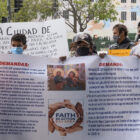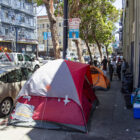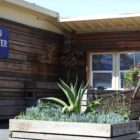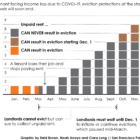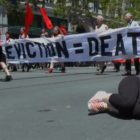Housing
Developer, Housing Authority Reconsider Future for Plaza East
The company that owns and manages the Plaza East public housing complex in San Francisco’s Western Addition neighborhood says it does not currently have a plan to tear down the property. The shift in the firm’s message comes after the U.S. Department of Housing and Urban Development did not approve a $320 million request from the company and the San Francisco Housing Authority, which owns the land, to demolish and rebuild the existing public housing complex and potentially add hundreds of units.

